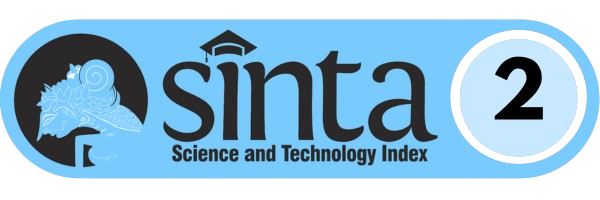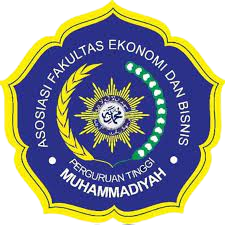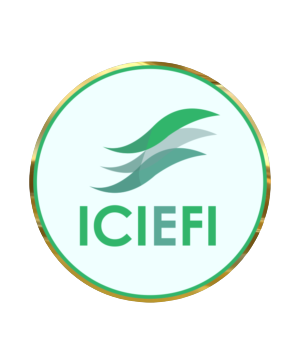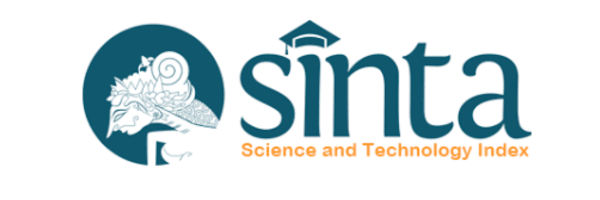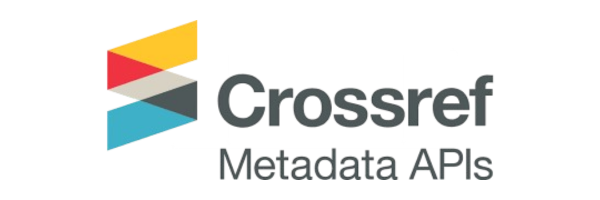The Impact on Economic and Environmental Development of COVID-19 Pandemic: a Case Study in Indonesia
DOI:
https://doi.org/10.24269/ekuilibrium.v16i1.2021.pp1-11Abstract
The goal of this analysis is to examine in greater detail the effect of the COVID-19 pandemic on economic development and the quality of the atmosphere in Indonesia. This report uses secondary data as the primary source, obtained using a secondary data collection method from many different organizations. Different government policies and measures to discourage the escalation of the transmission of the Coronavirus, one of which is large-scale social restrictions (PSBB). However, before Indonesia suffered a recession, the PSBB actually became a barrier to economic development. As a part of this program, the rise in environmental efficiency is another positive effect because traffic that generates emissions and vast manufacturing sectors that create dirty waste is temporarily halted. Based on the findings of the review, this report notes that there is a detrimental effect of COVID-19 on economic development in Indonesia. However, because of the introduction of PSBB, Indonesia's air quality has improved. This report is intended to serve as a reference and assessment of the effects of COVID-19 on the economy and the atmosphere for stakeholders and the general public. In order to allow the government to consider measures that will deter the spread of the coronavirus and restore the economy without damaging improved air quality.
References
Becchetti, L., Conzo, G., Conzo, P., & Salustri, F. (2020). Understanding the Heterogeneity of Adverse COVID-19 Outcomes: the Role of Poor Quality of Air and Lockdown Decisions. Available at SSRN 3572548.
Chen, P.-S., Tsai, F. T., Lin, C. K., Yang, C.-Y., Chan, C.-C., Young, C.-Y., & Lee, C.-H. (2010). Ambient Influenza and Avian Influenza Virus during Dust Storm Days and Background Days. Environmental Health Perspectives, 118(9), 1211–1216.
Cheng, V. C. C., Wong, S.-C., Chen, J. H. K., Yip, C. C. Y., Chuang, V. W. M., Tsang, O. T. Y., Sridhar, S., Chan, J. F. W., Ho, P.-L., & Yuen, K.-Y. (2020). Escalating Infection Control Response to the Rapidly Evolving Epidemiology of the Coronavirus Disease 2019 (COVID-19) due to SARS-CoV-2 in Hong Kong. Infection Control & Hospital Epidemiology, 41(5), 493–498.
Cheng, W. L., Fu, Q., Chai, F., Davis, S. J., Zhang, Q., & He, K. (2020). Enhanced Secondary Pollution Offset Reduction of Primary Emissions during COVID-19 Lockdown in China Xin Huang1, Aijun Ding1, Jian Gao2, Bo Zheng3, 4, Derong Zhou1, Ximeng Qi1, Rong Tang1, Chuanhua Ren1, Wei Nie1, Xuguang Chi1, Jiaping Wang1, Zheng Xu1, L.
Chinazzi, M., Davis, J. T., Ajelli, M., Gioannini, C., Litvinova, M., Merler, S., y Piontti, A. P., Mu, K., Rossi, L., & Sun, K. (2020). The Effect of Travel Restrictions on the Spread of the 2019 Novel Coronavirus (COVID-19) Outbreak. Science, 368(6489), 395–400.
CNBC. (2020). Kabar Pertumbuhan Ekonomi Indonesia Pasca Covid-19. Cnbc News. www.cnbc.com
Conticini, E., Frediani, B., & Caro, D. (2020). Can Atmospheric Pollution be Considered a Co-Factor in Extremely High Level of SARS-CoV-2 Lethality in Northern Italy? Environmental Pollution, 114465.
Cori, L., & Bianchi, F. (2020). COVID-19 and Air Pollution: Communicating the Results of Geographic Correlation Studies. Epidemiol. Prev, 44, 120–123.
Gopinath, G. (2020). The Great Lockdown: Worst Economic Downturn since the Great Depression. IMF Blog, 14, 2020.
Laake, P., & Benestad, H. B. (2015). Research in Medical and Biological Sciences: From Planning and Preparation to Grant Application and Publication. Academic Press.
Lai, C.-C., Shih, T.-P., Ko, W.-C., Tang, H.-J., & Hsueh, P.-R. (2020). Severe Acute Respiratory Syndrome Coronavirus 2 (SARS-CoV-2) and Corona Virus Disease-2019 (COVID-19): the Epidemic and the Challenges. International Journal of Antimicrobial Agents, 105924.
McNabb, D. E. (2015). Fundamentals of Quantitative Research. In Research Methods in Public Administration and Nonprofit Management (pp. 159–169). Routledge.
Mele, M., & Magazzino, C. (2020). Pollution, Economic Growth, and COVID-19 Deaths in India: a Machine Learning Evidence. Environmental Science and Pollution Research. https://doi.org/10.1007/s11356-020-10689-0
Mofijur, M., Fattah, I. M. R., Alam, M. A., Islam, A. B. M. S., Ong, H. C., Rahman, S. M. A., Najafi, G., Ahmed, S. F., Uddin, M. A., & Mahlia, T. M. I. (2021). Impact of COVID-19 on the Social, Economic, Environmental and Energy Domains: Lessons Learnt from a Global Pandemic. Sustainable Production and Consumption, 26, 343–359. https://doi.org/10.1016/j.spc.2020.10.016
Muhammad, S., Long, X., & Salman, M. (2020). COVID-19 Pandemic and Environmental Pollution: A Blessing in Disguise? Science of the Total Environment, 728, 138820. https://doi.org/10.1016/j.scitotenv.2020.138820
Nicola, M., Alsafi, Z., Sohrabi, C., Kerwan, A., Al-Jabir, A., Iosifidis, C., Agha, M., & Agha, R. (2020). The Socio-Economic Implications of the Coronavirus Pandemic (COVID-19): A Review. International Journal of Surgery (London, England), 78, 185.
Peng, L., Zhao, X., Tao, Y., Mi, S., Huang, J., & Zhang, Q. (2020). The Effects of Air Pollution and Meteorological Factors on Measles Cases in Lanzhou, China. Environmental Science and Pollution Research, 1–10.
Piazzalunga-Expert, A. (2020). Evaluation of the Potential Relationship between Particulate Matter (PM) Pollution and COVID-19 Infection Spread in Italy. Mimeo.
Tambunan, L. (2020). Kualitas Udara Jakarta selama PSBB. BBC News Indonesia, 5(10), 89. ANTARAfoto/bbc.com
Wang, Q., & Su, M. (2020a). A Preliminary Assessment of the Impact of COVID-19 on Environment – a Case Study of China. Science of the Total Environment, 728, 138915. https://doi.org/10.1016/j.scitotenv.2020.138915
Wang, Q., & Su, M. (2020b). Drivers of Decoupling Economic Growth from Carbon Emission – an Empirical Analysis of 192 Countries using Decoupling Model and Decomposition Method. Environmental Impact Assessment Review, 81, 106356.
Wang, Q., Su, M., Li, R., & Ponce, P. (2019). The Effects of Energy Prices, Urbanization and Economic Growth on Energy Consumption Per Capita in 186 Countries. Journal of Cleaner Production, 225, 1017–1032.
Wu, X., Nethery, R. C., Sabath, B. M., Braun, D., & Dominici, F. (2020). Exposure to Air Pollution and COVID-19 Mortality in the United States. MedRxiv.
Ye, Q., Fu, J., Mao, J., & Shang, S. (2016). Haze is a Risk Factor Contributing to the Rapid Spread of Respiratory Syncytial Virus in Children. Environmental Science and Pollution Research, 23(20), 20178–20185.
Downloads
Published
How to Cite
Issue
Section
License
Retained Rights/Terms and Conditions of Publication
1. As an author you (or your employer or institution) may do the following:
- make copies (print or electronic) of the article for your own personal use, including for your own classroom teaching use;
- make copies and distribute such copies (including through e-mail) of the article to research colleagues, for the personal use by such colleagues (but not commercially or systematically, e.g. via an e-mail list or list server);
- present the article at a meeting or conference and to distribute copies of the article to the delegates attending such meeting;
- for your employer, if the article is a ‘work for hire’, made within the scope of your employment, your employer may use all or part of the information in the article for other intra-company use (e.g. training);
- retain patent and trademark rights and rights to any process, procedure, or article of manufacture described in the article;
- include the article in full or in part in a thesis or dissertation (provided that this is not to be published commercially);
- use the article or any part thereof in a printed compilation of your works, such as collected writings or lecture notes (subsequent to publication of the article in the journal); and prepare other derivative works, to extend the article into book-length form, or to otherwise re-use portions or excerpts in other works, with full acknowledgement of its original publication in the journal;
- may reproduce or authorize others to reproduce the article, material extracted from the article, or derivative works for the author's personal use or for company use, provided that the source and the copyright notice are indicated, the copies are not used in any way that implies RCEPM-LIPI endorsement of a product or service of any employer, and the copies themselves are not offered for sale.
All copies, print or electronic, or other use of the paper or article must include the appropriate bibliographic citation for the article's publication in the journal.
2. Requests from third parties
Although authors are permitted to re-use all or portions of the article in other works, this does not include granting third-party requests for reprinting, republishing, or other types of re-use. Requests for all uses not included above, including the authorization of third parties to reproduce or otherwise use all or part of the article.
3. Author Online Use
- Personal Servers. Authors and/or their employers shall have the right to post the accepted version of articles pre-print version of the article, or revised personal version of the final text of the article (to reflect changes made in the peer review and editing process) on their own personal servers or the servers of their institutions or employers without permission from Universitas Muhamamdiyah Ponorogo, provided that the posted version includes a prominently displayed Universitas Muhamamdiyah Ponorogo copyright notice and, when published, a full citation to the original publication, including a link to the article abstract in the journal homepage. Authors shall not post the final, published versions of their papers;
- Classroom or Internal Training Use. An author is expressly permitted to post any portion of the accepted version of his/her own articles on the author's personal web site or the servers of the author's institution or company in connection with the author's teaching, training, or work responsibilities, provided that the appropriate copyright, credit, and reuse notices appear prominently with the posted material. Examples of permitted uses are lecture materials, course packs, e-reserves, conference presentations, or in-house training courses;
- Electronic Preprints. Before submitting an article to an Ekuilibrium: Jurnal Ilmiah Bidang Ilmu Ekonomi, authors frequently post their manuscripts to their own web site, their employer's site, or to another server that invites constructive comment from colleagues. Upon submission of an article to Ekuilibrium: Jurnal Ilmiah Bidang Ilmu Ekonomi, an author is required to transfer copyright in the article to Economy Faculty Universitas Muhammadiyah Ponorogo, and the author must update any previously posted version of the article with a prominently displayed Economy Faculty Universitas Muhammadiyah Ponorogo copyright notice. Upon publication of an article by the Universitas Muhammadiyah Ponorogo, the author must replace any previously posted electronic versions of the article with either (1) the full citation to the work with a Digital Object Identifier (DOI) or link to the article abstract in Ekuilibrium: Jurnal Ilmiah Bidang Ilmu Ekonomi journal homepage, or (2) the accepted version only (not the final, published version), including the Economy Faculty Universitas Muhammadiyah Ponorogo copyright notice and full citation, with a link to the final, published article in journal homepage.
4. Articles in Press (AiP) service
Economy Faculty Universitas Muhammadiyah Ponorogo may choose to publish an abstract or portions of the paper before we publish it in the journal. Please contact our Production department immediately if you do not want us to make any such prior publication for any reason, including disclosure of a patentable invention.
5. Author/Employer Rights
If you are employed and prepared the article on a subject within the scope of your employment, the copyright in the article belongs to your employer as a work-for-hire. In that case, Economy Faculty Universitas Muhammadiyah Ponorogo assumes that when you sign this Form, you are authorized to do so by your employer and that your employer has consented to the transfer of copyright, to the representation and warranty of publication rights, and to all other terms and conditions of this Form. If such authorization and consent has not been given to you, an authorized representative of your employer should sign this Form as the Author.
6. RCEPM-LIPI Copyright Ownership
It is the formal policy of Economy Faculty Universitas Muhammadiyah Ponorogo to own the copyrights to all copyrightable material in its technical publications and to the individual contributions contained therein, in order to protect the interests of the Economy Faculty Universitas Muhammadiyah Ponorogo, its authors and their employers, and, at the same time, to facilitate the appropriate re-use of this material by others. Economy Faculty Universitas Muhammadiyah Ponorogo distributes its technical publications throughout the world and does so by various means such as hard copy, microfiche, microfilm, and electronic media. It also abstracts and may translate its publications, and articles contained therein, for inclusion in various compendiums, collective works, databases and similar publication.
7. Licensing Terms
Ekuilibrium is licensed under a Creative Commons Attribution-ShareAlike 4.0 International License.
Permissions beyond the scope of this license may be available at https://journal.umpo.ac.id/


